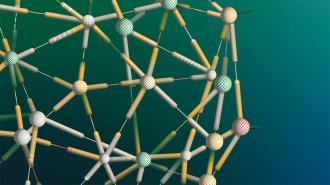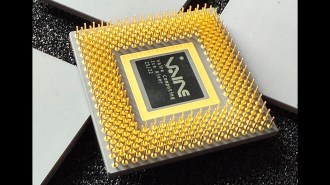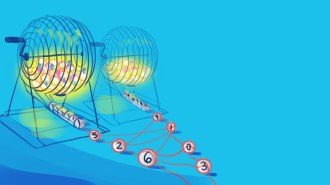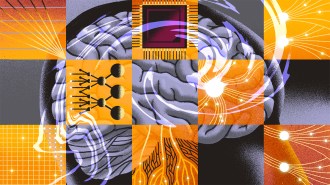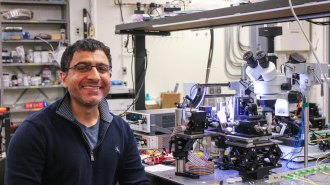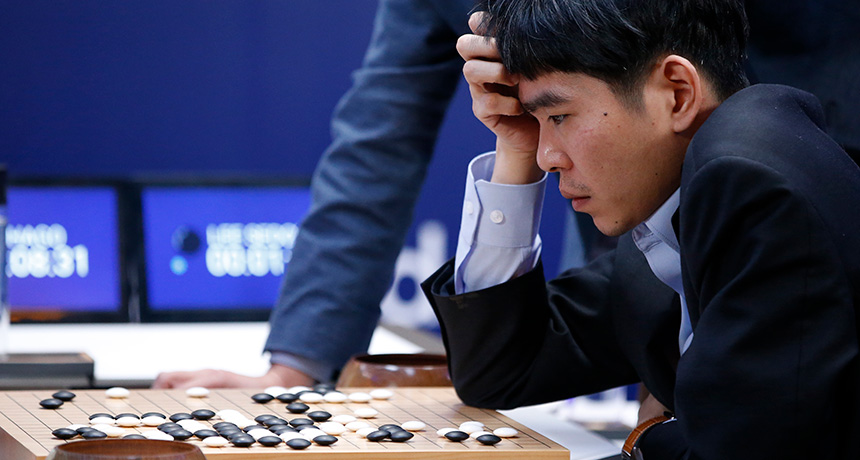
GO GAME CHANGER AlphaGo won four games to Lee Sedol’s one in their March Go matchup. Sedol, a South Korean professional player, studies the board after his third loss.
Lee Jin-man/AP Photo
![]() In a hotel ballroom in Seoul, South Korea, early in 2016, a centuries-old strategy game offered a glimpse into the fantastic future of computing.
In a hotel ballroom in Seoul, South Korea, early in 2016, a centuries-old strategy game offered a glimpse into the fantastic future of computing.
The computer program AlphaGo bested a world champion player at the Chinese board game Go, four games to one (SN Online: 3/15/16). The victory shocked Go players and computer gurus alike. “It happened much faster than people expected,” says Stuart Russell, a computer scientist at the University of California, Berkeley. “A year before the match, people were saying that it would take another 10 years for us to reach this point.”
The match was a powerful demonstration of the potential of computers that can learn from experience. Elements of artificial intelligence are already a reality, from medical diagnostics to self-driving cars (SN Online: 6/23/16), and computer programs can even find the fastest routes through the London Underground. “We don’t know what the limits are,” Russell says. “I’d say there’s at least a decade of work just finding out the things we can do with this technology.”
AlphaGo’s design mimics the way human brains tackle problems and allows the program to fine-tune itself based on new experiences. The system was trained using 30 million positions from 160,000 games of Go played by human experts. AlphaGo’s creators at Google DeepMind honed the software even further by having it play games against slightly altered versions of itself, a sort of digital “survival of the fittest.”
These learning experiences allowed AlphaGo to more efficiently sweat over its next move. Programs aimed at simpler games play out every single hypothetical game that could result from each available choice in a branching pattern — a brute-force approach to computing. But this technique becomes impractical for more complex games such as chess, so many chess-playing programs sample only a smaller subset of possible outcomes. That was true of Deep Blue, the computer that beat chess master Garry Kasparov in 1997.
But Go offers players many more choices than chess does. A full-sized Go board includes 361 playing spaces (compared with chess’ 64), often has various “battles” taking place across the board simultaneously and can last for more moves.
AlphaGo overcomes Go’s sheer complexity by drawing on its own developing knowledge to choose which moves to evaluate. This intelligent selection led to the program’s surprising triumph, says computer scientist Jonathan Schaeffer of the University of Alberta in Canada. “A lot of people have put enormous effort into making small, incremental progress,” says Schaeffer, who led the development of the first computer program to achieve perfect play of checkers. “Then the AlphaGo team came along and, incremental progress be damned, made this giant leap forward.”
Real-world problems have complexities far exceeding those of chess or Go, but the winning strategies demonstrated in 2016 could be game changers.

